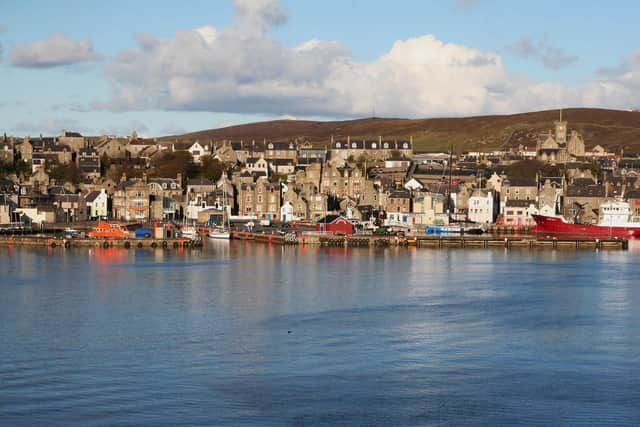Shetland communications: Damaged subsea cable leaves Shetland cut off from mainland
A major incident has been declared by police after residents of the Shetland islands were left without a phone and internet connection due to a break in the subsea cable connecting their homes to mainland Scotland.
Police Scotland are also working with the Scottish Fire and Recue Service and HM Coastguard to bring additional emergency support to the island.
The cause of the damage has not yet been confirmed.
Advertisement
Hide AdAdvertisement
Hide AdOperator BT said the break is in a third-party cable and that engineers are working to divert services via other lines as soon as possible.
A BT Group spokesperson said: "Due to a break in a third-party subsea cable connecting Shetland with the Scottish mainland, some phone, broadband and mobile services are affected.
"Engineers are working to divert services via other routes as soon as possible and we'll provide further updates.
"Our external subsea provider is also looking to restore their link quickly. Anyone who needs to call 999 should try their landline or their mobile, even if they don't have signal from their own mobile provider.


"We're sorry for any inconvenience."
Commenting on the outage, Beatrice Wishart, the MSP for Shetland, said: “There is an extremely limited telephone and broadband service, which has huge repercussions for families and businesses across the islands.
“I am in limited contact with the Scottish Government to keep me updated on what can be done to resolve the incident as swiftly as possible.
“This kind of disruption points to the fundamental vulnerability of our current island infrastructure. We need long-term changes to create a resilient service that can guarantee residents connectivity, reliability and safety.”
Superintendent David Ross said: “In an emergency the public should try calling 999 on their landline or mobile.
Advertisement
Hide AdAdvertisement
Hide Ad“If that does not work, you should go to your nearest police station, ambulance station, fire station or hospital to report an emergency or try flagging down an emergency services vehicle that does not have its blue lights on.
“Officers are patrolling in vehicles and on foot and we are working with partners to make additional resources available.
“I would ask that relatives and neighbours of elderly or vulnerable people check on them regularly. Assistance alarms may not be operating correctly.”